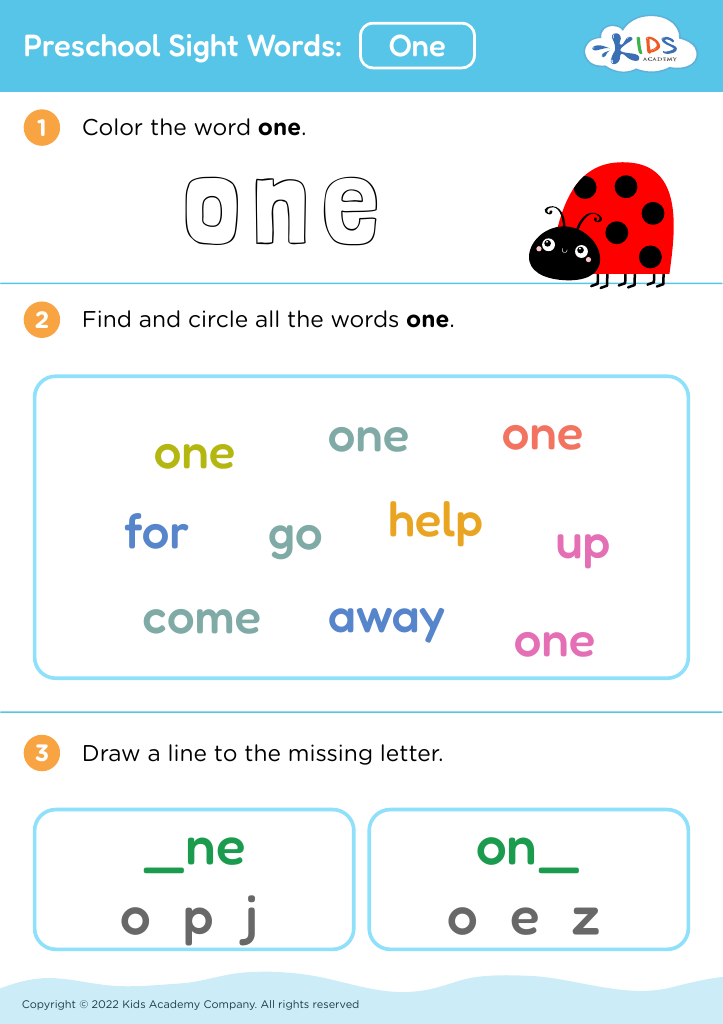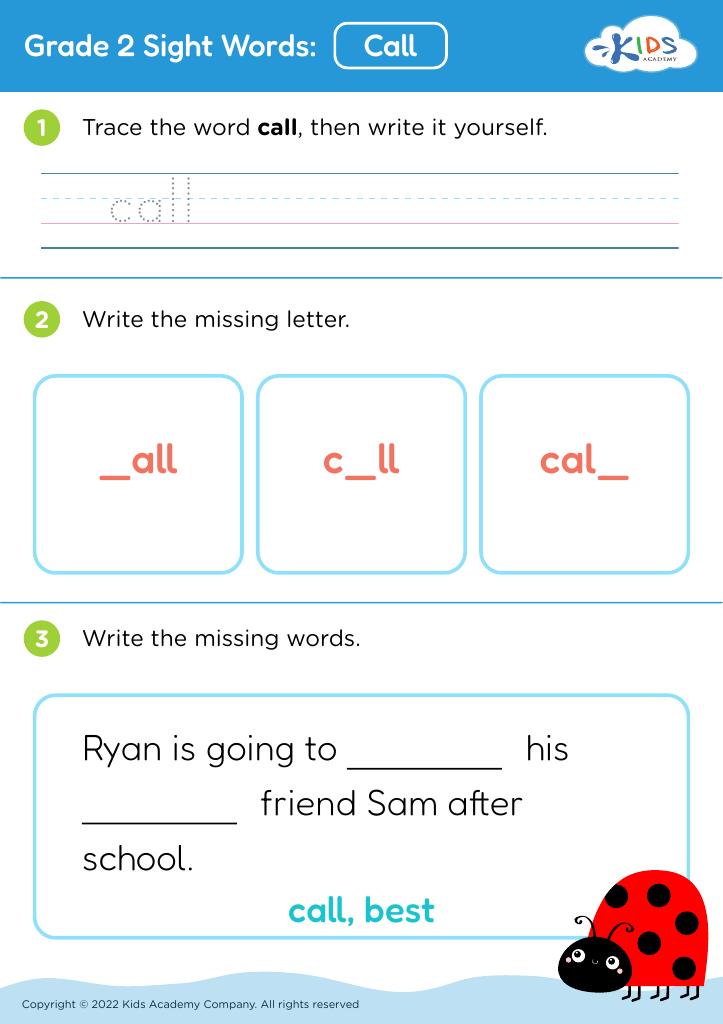Improving math skills Reading Worksheets for Ages 5-7
4 filtered results
-
From - To
Boost your child's math proficiency with our engaging and educational Reading Worksheets for ages 5-7. Specially crafted to enhance their mathematical understanding while developing essential reading skills, our worksheets are designed to make learning enjoyable and effective. Each activity focuses on key math concepts, from basic counting to simple addition and subtraction, all seamlessly integrated with reading exercises. Children will be captivated by fun characters and interactive tasks that turn learning into an exciting adventure. Help your young learners build the foundation they need for future academic success with our expert-designed, age-appropriate worksheets.
Improving math skills and reading abilities for children ages 5-7 is crucial for their overall cognitive and academic development. Early childhood is a critical period when foundational skills are formed, and strong early abilities in math and reading can set the stage for future academic success. For one, math aids in developing problem-solving and logical-thinking skills. Children who grasp basic math concepts early on are better equipped to tackle more complex problems in higher grades, promoting a positive attitude towards the subject.
Reading, on the other hand, is essential for language development and comprehension skills. Early reading habits expand a child's vocabulary, enhance their understanding of the world, and stimulate their imagination. Being proficient in reading also supports learning across all subjects because it is the primary way students gather information and follow instructions.
Moreover, early proficiency in these areas boosts children's confidence and creates a positive association with learning. This can lead to a more engaged and motivated student, reducing the likelihood of future academic struggles. In short, by investing time and effort into improving math and reading skills during the formative years of 5-7, parents and teachers lay a strong foundation for continued educational success and lifelong learning appreciation.





















